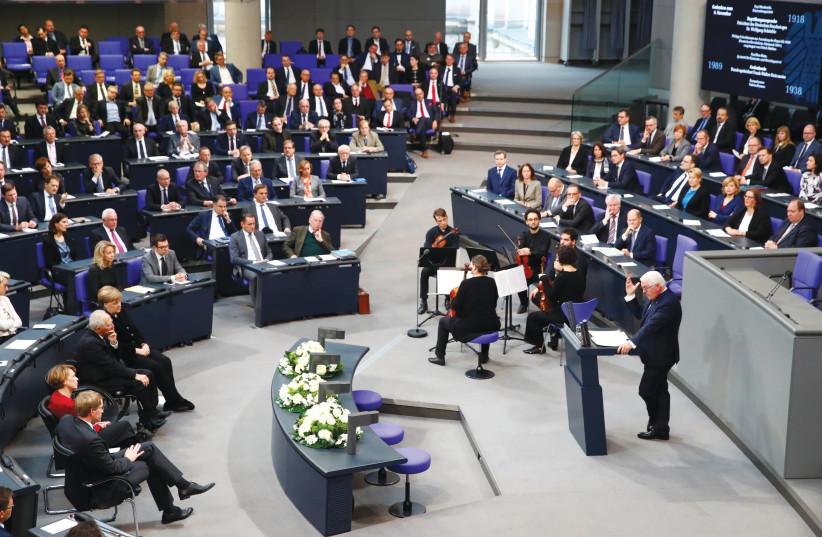We are used to thinking about the tension between Israel’s twin identity components – a Jewish and democratic state – in the context of internal affairs, especially the tension between religion and state, and the tension between the Jewish majority and the Arab minority. But should the fact that the state is Jewish carry implications for its foreign and defense policy?
Our self-image is that of a particular moral state. A survey conducted in May by the Jewish People Policy Institute (JPPI) found that two-thirds of Israeli Jews believe that Israel’s conduct with regard to foreign and defense policy is more moral than the global average. Only a small minority (16%) think that Israel is less moral than the average in the rest of the world.
However, when respondents were asked to consider concrete questions that raise moral dilemmas in foreign policy, a more complex picture emerged. Most of the Israeli public would like to strike some kind of balance between national interests, and moral and ethical considerations when tension erupts between the two. But – and this is the point – only a minority are willing to prioritize moral considerations in Israel’s foreign policy if it would entail paying a significant price.
Thus, in the context of the war in Ukraine, the majority of the Israeli public believes that the state should act in a way that will not significantly compromise relations with Russia. Less than a fifth (17%) want Israel to take a clearer stance in favor of Ukraine in the name of morality.
When a hypothetical question was posed as to how Israel should act if a coup took place in a democratic country with which it has excellent ties and the new dictator was to severely violate civil rights. Only a small share of those surveyed (15%) believed that Israel should sever ties with the dictatorship.


A similar position was also revealed when participants were asked whether and how the lessons of the Holocaust should influence Israel’s foreign and defense policy considerations. The majority (51%) answered that the history lesson is that Israel should show determination without too much consideration of what the rest of the world thinks. Only a third said they believe the lesson of the Holocaust is that Israel should be more sensitive than other nations in the face of violence against innocent people around the world.
There is, therefore, a real gap between the positive self-image of Israelis regarding morality and the public’s true preferences.
The most fascinating and disturbing finding is the existence of a clear and significant correlation between those who say that their guiding consideration is the fact that Israel is a Jewish state and those who tend to prioritize interests over moral considerations in foreign policy. How is it that precisely those who look at our sovereign reality through a Jewish lens downplay moral-ethical considerations?
Over the course of thousands of years of exile, the Jewish people lived outside the framework of a state and therefore did not engage in foreign policy at all. Under conditions of exile, the Jews developed a high degree of moral sensitivity as the perpetual weaker party. Thus, today’s liberal human rights discourse relies heavily on Jewish thought and Jewish values.
Now that Zionism has succeeded in restoring national sovereignty to the Jewish people, we face a challenge: how to maintain our moral sensitivity from a position of power. The Jewish nation-state is supposed to express its Jewish character in its foreign and defense policy by displaying the moral vigilance that has characterized the Jews since time immemorial.
Theodor Herzl, the father of secular Zionism, imagined a house of peace would be built on the Temple Mount and bear the humanist slogan “Nothing human is alien to me.” Rabbi Abraham Isaac Kook, the father of Religious Zionism, said, “The Congregation of Israel wants to live precisely because of its moral purpose.” Are we fulfilling their vision? Israel, in its foreign policy decisions, must express what we seek to be: “a light unto the nations” (Isaiah 49).
The writer is president of the Jewish People Policy Institute and a professor of law at Bar-Ilan University.
